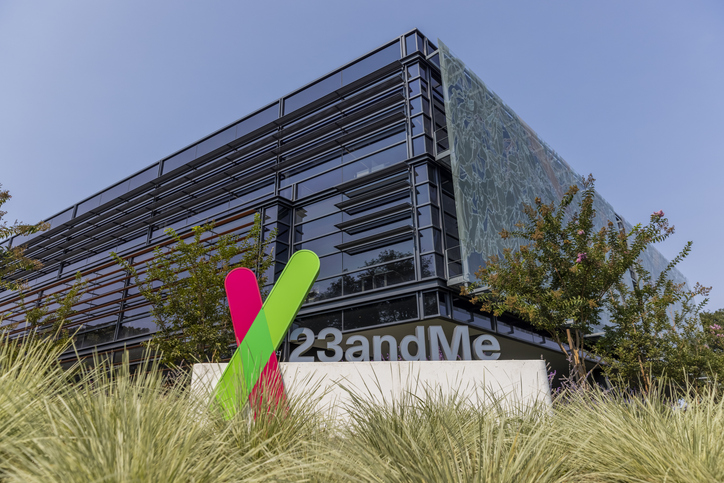The moment a potential new hire enters the interview and hiring process, you are representing your company. They are getting your company’s first impressions based on how you talk about your brand and the interview experience. You are the brand ambassador of your company in this scenario. As the HR or hiring manager, it’s important to give them a great experience even if it doesn’t work out. That way, your company will avoid any negative reviews floating around social media or Glassdoor. As soon as the new employee is hired, they become a brand ambassador and represent your company on and off work hours.
Your employees are the face of your company, no matter what their role is. Whether it’s discussing controversial topics on a community board such as Quora or Reddit, promoting a new product feature on LinkedIn, or even sharing personal opinions on a social media profile, every conversation and interaction is an opportunity to showcase your brand and what it stands for publicly.
In a pandemic, society faces all types of obstacles, from social injustice to the upcoming Presidential election. In addition, we are now seeing a new divide forming around COVID-19 (pro-maskers vs. anti-maskers, etc.). Times are sensitive now. What anyone says or posts on social media can be taken negatively. As culture leaders and managers, it is up to us to teach and educate ourselves and our workforce on how to do the right thing regarding social media, your brand, and ensuring work relationships don’t get hurt.
Social Media and the Impact on Working Relationships
We are about eight months into the pandemic, working remotely in our makeshift workspaces with zero physical contact with colleagues. It’s no surprise that some of us want to stay strongly connected with our colleagues, and some may have started to add each other on Facebook, Instagram, Twitter, etc. There is nothing wrong with staying connected with colleagues. However, it’s important to remind your employees to think about the potential consequences of adding your colleagues to personal social networks.
A few key questions that both managers and employees can ask themselves before accepting a friend request:
- Do you want to take your work relationship to the next level?
- Do you want your colleagues to know the details of your personal life? Do you want to know about theirs?
- Is this a manager-employee relationship? Will this blur the lines between work and personal relationships?
You can learn more about the impact of social media on work relationships in our microlesson.
Promoting Your Company and Its Brand
Employees have good intentions to promote their company. LinkedIn is the ultimate social platform for employees to share their company’s updates whether they be new product launches, company announcements, press releases, or sharing content from the website (ex: blogs, resources, etc). From a marketing perspective, this is what we want; to leverage employee’s networks and to increase followership and engagement. Share your company’s brand, design, and messaging guidelines with your workforce. The goal here is to be consistent and cohesive when it comes to referencing or promoting your company. You want your employees to show up in a way that is consistent and interpreted both clearly and on-brand.
Social media is a powerful tool for employees and organizations to express themselves and humbly show off its brand and people. But what we say on our social media can create unintended consequences at work and hurt relationships with colleagues.
Provide employees with guidelines on how to talk about the company appropriately on their social media profiles. It’s human to want to vent about work or a work-related issue after a long day. However, these actions have consequences online and in real life. In Emtrain’s microlesson on social media and the workplace, we educate employees on how disparaging the company, its clients, its employees, or management is never okay. While you don’t want to discourage anyone’s right to provide feedback on company or leadership, remind your employees to do so respectfully without revealing financial, trade secrets, or other intellectual property. Check out the Social Media policy template to learn more.
Political Opinions on Social Media
In addition to COVID-19, the news about the 2020 presidential election is ramping up. We can’t help but pay attention and express our opinions. There is no doubt that your workforce is talking about it amongst their colleagues, posting on social media, and forming differing viewpoints from one another. Politics can create a divide among different groups in the company and can be a very touchy subject.
Social media is a place to express our views as authentically as we can. Part of being a brand ambassador is to understand that posting extreme or controversial topics online can put their job at risk. For example, posting an article with the caption “These idiots are not wearing masks at a MAGA rally” can potentially be viewed by a client and could drop the business. Or an employee who is more Liberal compared to their Conservative manager might see Anti-Abortion messaging on their manager’s Facebook profile and will have a negative view of them, potentially hurting the employee-manager relationship. Check out a sneak preview of our newest microlesson on politics and social media.
Everyone has a legal right to express their political opinion on social media. As humans, we tend to be biased about one party or group based on our own experiences, background, and how we get news. Ultimately, anything that employees post on their social networks should not reflect their company’s stance on political views. Employees should avoid posting overly inflammatory political views online if their profile regularly references their employer, or if they are connected with co-workers.
Everyone has a different opinion and we need to be conscious of that. It’s okay for employees to express their opinions on social media. HR managers and culture leaders should only step in if the messages they post are harmful to the company, harassing or bullying an employee, or puts their job at risk.
To learn more about social media and the workplace, check out the following resources:
Microlesson: Politics: Pause Before You Post
Microlesson: The Impact of Social Media at Work
Microlesson: Social Media Harassment
Social Media Template Policy
Why Your Dated Social Media Policies Are A Culture and Legal Issue Waiting to Happen








